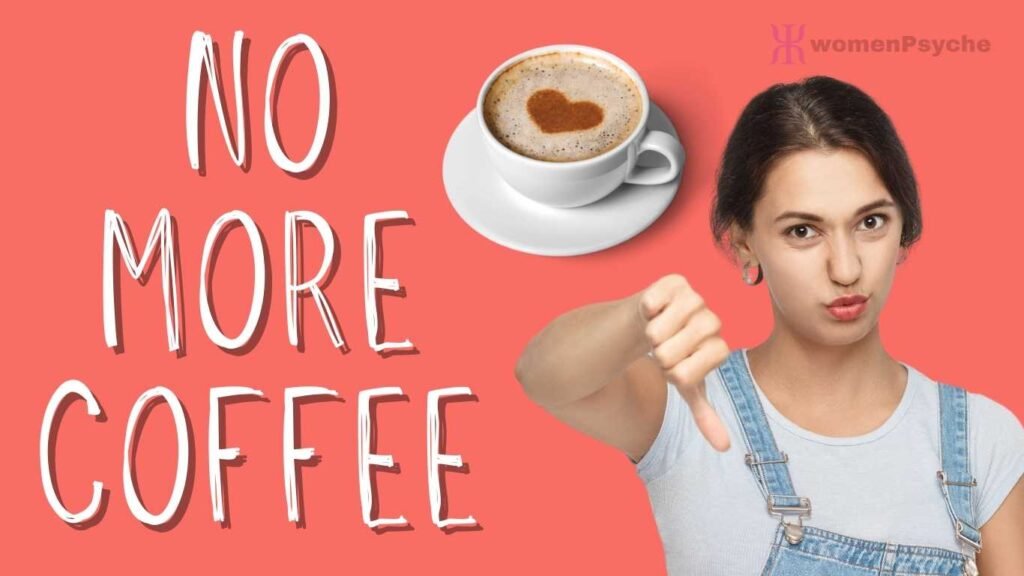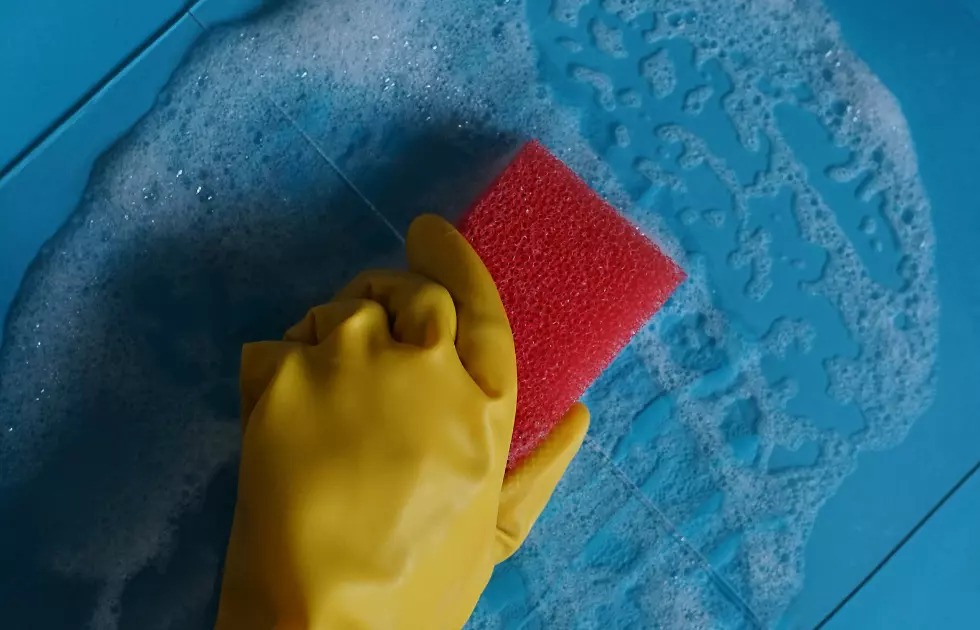A few months ago, if you had asked me if I was addicted to caffeine, I would have said a definitive NO.
Sure, I have a few cups of tea most days and maybe one coffee.
When I shifted out from under my denial blanket, I realised I was probably having hundreds of milligrams a day MORE caffeine than I thought.
How Much is Too Much?
I’ve never really been addicted to anything before (okay, chocolates and lollies), but this one crept up on me.
I think it’s because caffeine is so ‘acceptable’ – it’s everywhere. Consuming caffeine becomes a habit and routine, and you can’t even see it.
But it is classified as a drug by the FDA. Yet, what a socially acceptable drug it is!
Even when you know you are attached to it (i.e. you cannot get up in the morning or handle your workplace without it), there are just too many other things you can try to fix your life before you accept that caffeine may be doing more harm than good.
The daily recommended 400mg per day is a safe amount for ‘healthy’ adults. But since not many people keep track of their caffeine intake, how would you know? And what does ‘healthy’ mean in this scenario?
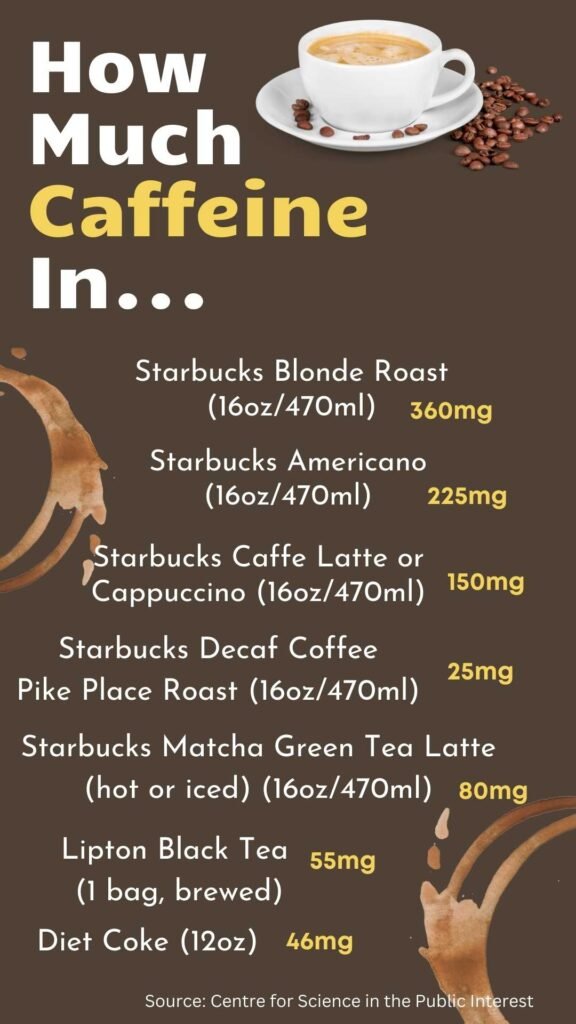
At this point, it’s important to acknowledge people have different levels of tolerances, metabolisms, and levels of health and that caffeine may impact everyone differently.
But one day, I found myself zeroing in on that innocent ceramic cup of heated delight and asking – are you good for me?
Why I Quit Caffeine
In this article, I would like to alert the younger readers to an almost unspoken ‘phenomenon’ called perimenopause.
Perimenopause is the transition time before menopause – before you cease menstruating.
I would regularly attend doctors in my 40s with various new health concerns, and not once was perimenopause mentioned as a possible cause.
Well, if you feel fatigued for no (obvious) reason, are a little (or a lot) irritable, or anxious, suddenly cannot remember things or focus and are over 35 or under 50 (approximately), it could be a change in hormones as you near menopause.

As I researched the topic, I read that reducing caffeine is recommended for women suffering from symptoms. My nutrition and overall health are fair to good, so I didn’t think reducing my already small (more denial) amount of caffeine would make a difference.
But one day, it hit me – hang on a minute, it might be the caffeine after all!
(Of course, it goes without saying that if you have a compassionate, experienced women’s health professional, you could also consult them instead of conducting personal research!).
How I Stopped My Caffeine Consumption
Essentially, I went cold turkey.
From what I read, this is generally not recommended. (After trying this approach, I can confirm that I would not recommend this either!).
It is suggested, that to avoid some rather nasty withdrawal effects, people should slowly wean off the caffeine by lessening their intake over several weeks (at least).
Being impatient for a result, I decided to endure a few days of horrible headaches to see if this new strategy of mine would work.
The headaches were intense and lasted a few days.
I stopped tea completely (I usually have strongly brewed black tea, not the ‘dip-dip’ tea bags). I still had one or two decaf coffees (which I have read still contain a small amount of caffeine).
Note – my decaf drink was more like lightly flavoured hot milk. I only use about ¼ to ½ teaspoon. I suspect this won’t cut it for hardcore caffeine fiends.
I learned caffeine is in green tea, chocolate, and some medications.
My caffeine experiment was not about small or trace amounts of caffeine. I was essentially trying to stop the deleterious effects of large doses.
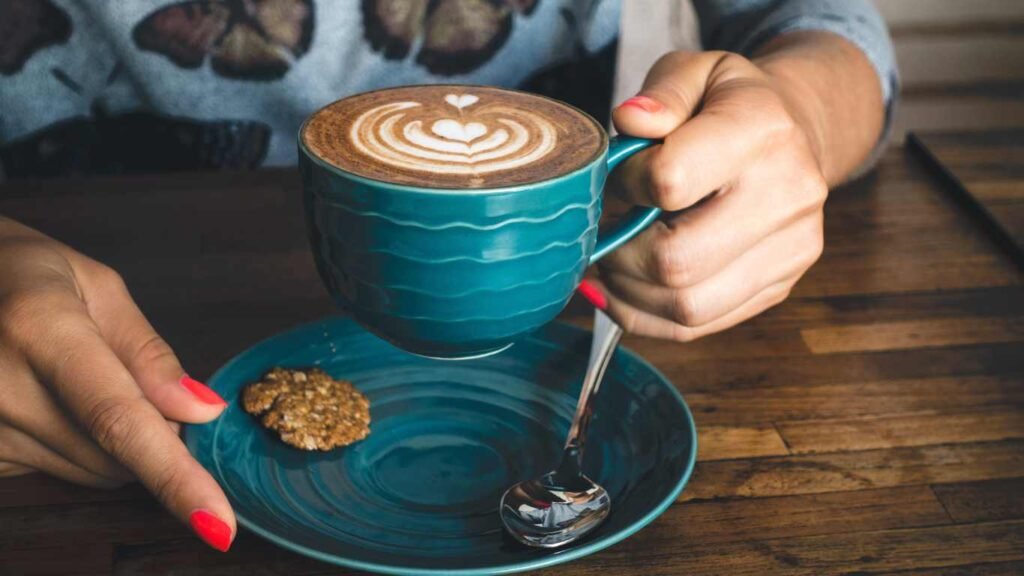
So What Happened Now I’m Off the Caffeine
After a week, I still felt a little low energy, however, I noticed after a few weeks that I did not need a ‘first-thing-in-the-morning’ caffeine hit.
I would say it took about one month to start noticing the difference.
My sleep improved straightaway. I no longer wake up in the early hours.
(Unfortunately, I was not very scientific with the whole process, and did not track my sleep before stopping tea and coffee).
- I don’t have energy crashes. I used to use coffee and tea as little crutches to prop me up when my energy flagged. I don’t need to do this anymore.
- I don’t have little heart flutters or palpitations.
- My tolerance to mini irritations has markedly improved.
- I do not crave or require a drink (of any kind) in the mornings.
- My skin started to look a little better (but, as with the other things mentioned above, I can’t confirm that stopping caffeine is responsible for all the improvements. It just happens to have coincided with me ceasing most caffeine!).
Tips for Replacing Caffeinated Drinks
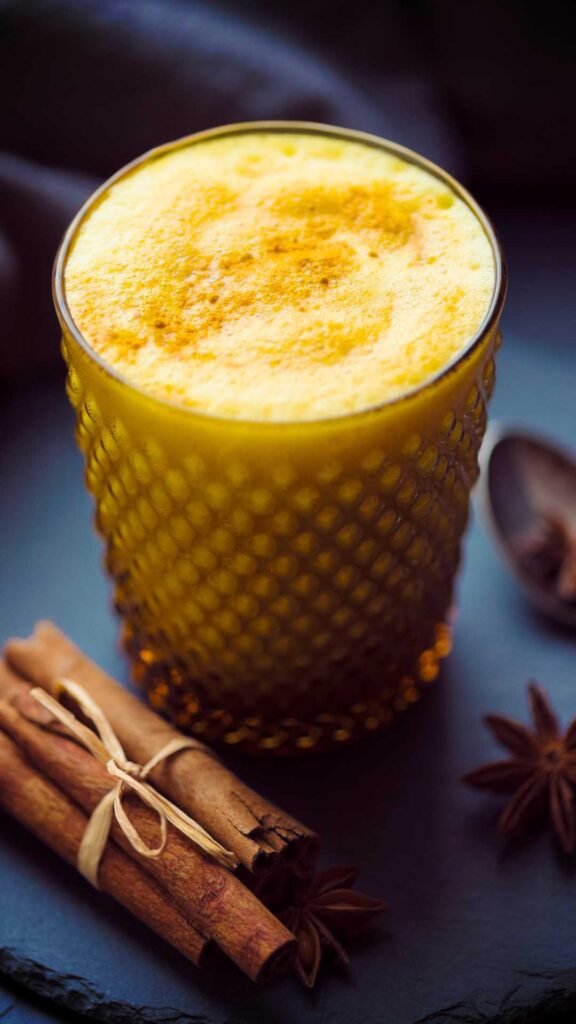
One of the most challenging parts of this n=1 experiment was that I missed the routine surrounding coffee and tea more than the actual drinks.
I’m not a fan of non-caffeinated herbal teas.
What I needed was a replacement drink.
I still enjoyed a coffee or tea break – just without the coffee or tea!
To replace the routine of a break, pick me up and hot drink, enter my new favourite drink – ‘Haldi Doodh’ – otherwise known outside of India as a Turmeric Latté or Golden Milk.
About six or seven years ago, when I was living in Melbourne, I used to order a turmeric latté with coconut milk now and then for a change. But I had forgotten (probably thanks to perimenopause!).
In India, haldi (turmeric) doodh (milk) have been used for centuries in Ayurvedic medicine.
I was not drinking this for the medicinal benefits, though – I chose it as my main replacement drink because it looked and tasted a little like custard!
Haldi Doodh Recipe (Turmeric Latte)
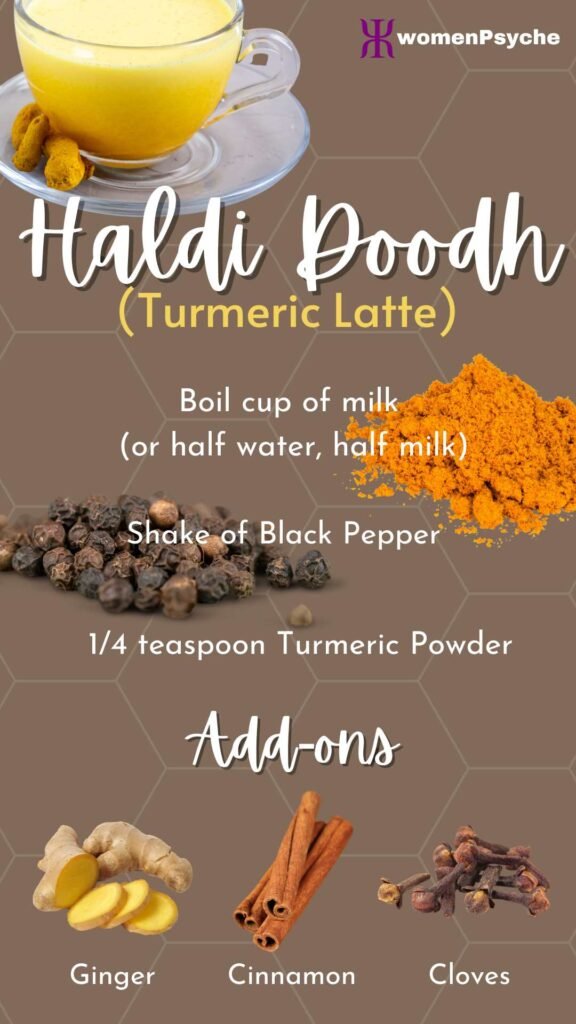
I don’t add sweeteners, but you could add those if you prefer sweet-tasting drinks.
Other drinks I have since discovered that substitute for my old caffeine friends are –
- Decaf coffee with ginger
- Warm water (in a fancy tea cup!)
- Warm milk
I also drink the following cold beverages during my ‘coffee and tea break’ – Apple cider vinegar, lemon, and salt, and I’ve recently developed a taste for buttermilk.

Am I going to Continue?
The short answer is yes. I don’t plan to restart caffeinated drinks like coffee or tea (except for mini decafs occasionally).
I do not plan to stop all caffeine – chocolate is still on the table once in a while!!!

References
https://www.cspinet.org/caffeine-chart
https://www.openaccessjournals.com/articles/caffeineinduced-anxiety-disorder-in-perimenopause.pdf

